The NABU “Midas” operation revealed political corruption in Ukraine’s Ministry of Defence. Businessman Timur Mindich allegedly pressured officials to favor dubious companies, “Fortress of Defence” and Milicon, bypassing licensed Ukrainian manufacturers.
DOT expanded tender criteria to let these one-day companies participate, ignored SAS conclusions on violations, and manipulated contracts. Civil society oversight, led by NAKO and the PAC Council, prevented payment for substandard bulletproof vests. While no money was paid, the scheme exposed clear corruption, implicating officials including Rustem Umerov. The case highlights the urgent need for transparency, legislative safeguards, and civilian oversight in defence procurement to protect the military and the public.
The NABU operation may indicate that the Public Anti-Corruption Council of the Ministry of Defense of Ukraine (PAC Council) and the Independent Anti-Corruption Commission (NAKO) stopped an attempted act of political corruption within the Defence Ministry.
Businessman Timur Mindich may have pressured former Defence Minister Rustem Umerov so that a company with a dubious reputation would supply bulletproof vests for the Armed Forces. This became known from public sources — in particular, the information was shared by volunteer and blogger Ihor Lachenkov. The investigation into Mindich is part of the large-scale NABU and SAPO operation “Midas,” which examines abuses in the energy and defence sectors.
It concerns a 200 million UAH contract with the distributor of the Israeli company Masada — the company Milicon, which had not previously participated in state tenders. Milikon failed the initial delivery batches, providing Chinese bulletproof vests instead of the promised Israeli ones.
The State Rear Operator (DOT) terminated the contract at the last moment, only after pressure from civil society — in particular the Public Anti-Corruption Council at the Ministry of Defence, whose work is supported by NAKO. We also highlighted the suspicious nature of this contract in our own analysis of corruption risks in rear procurement.
Senior NAKO researcher and deputy head of the PAC Council of the Ministry of Defence, Tetiana Nikolaienko, repeatedly raised the issue of low-quality bulletproof vests both publicly and at meetings of the Ministry of Defence’s Collegial Body responsible for non-lethal procurement. “The only good thing is that the state did not pay for these vests,” Nikolaienko says.
The story was as follows: in winter, DOT announced a tender worth 1.6 billion for 75,000 bulletproof vests, and an unknown shady company called “Fortress of Defence” showed up.
They participated and won with the lowest price. The only reason they were not contracted was pure chance — the company did not have a licence to sell. Meanwhile, Ukrainian manufacturers did have such licences.
And instead of supporting a Ukrainian manufacturer, DOT cancelled the tender — because it chose not the interests of Ukrainian producers, but the interests of Mindich himself.
A month later, DOT announced a new tender, this time only for 200 million. It was won by another shady company — Milicon, purchased just two days before the tender, with a sample of a bulletproof vest taken from Fortress of Defence. Convenient, isn’t it?
What happened next? Well, of course. The company failed the first delivery batches — instead of Israeli vests, what arrived in Ukraine was Chinese crap that could be easily shot through and was poorly stitched.
And at every meeting with DOT I kept barking, asking when they would finally terminate this contract. DOT kept a stone face. They clung to it with their teeth and refused to break it. Now it’s clear why. An entire former Minister of Defence didn’t dare ignore Mindich.
All that’s left for me is to thank the soldiers who didn’t bend and refused to accept this junk.
DOT terminated the contract on the very last day, just when the acceptance process was nearly exploding in anger.
Later, the head of the relevant department who signed this contract, Viktoria Vynohradova, was heroically transferred to AOZ out of unknown delight.
And the minister became the Secretary of the NSDC.
The only good thing — the state did not pay for these vests.
“The point is that we don’t have real mechanisms to protect against such cases. And we need to create them at the legislative level. In particular, a separate law on the activities of a single defence procurement agency, since we are already creating it,” she concluded.
This story once again proves the importance of civilian oversight over the security and defence sector. “The Collegial Body was created on the initiative of NAKO and the PAC Council of the Ministry of Defence. Thanks to this, civil society can take part in decision-making on non-lethal procurement,” said NAKO Executive Director Olena Tregub.
The first audio recordings made as part of the “Midas” operation were released on November 10. The investigation concerns officials who allegedly organized a criminal group for corrupt purposes. In particular, it mentions the head of the group, nicknamed “Carlson,” whom the media identify as Timur Mindich — a friend and business partner of the President of Ukraine.
Detailed investigation in spring 2025:
Despite Ukraine entering the fourth year of the war, the country still faces a critical issue of supplying soldiers with body armor. The problem is that the Ukrainian manufacturer offering the lowest prices cannot meet the full demand, while others cannot afford to sell below cost. This was reported by Censor.NET.
For more than a year, the “State Rear Operator” has been looking for a solution to this situation.
But after the latest tenders, it appears there is a desire to purchase bulletproof vests from one specific company — an Israeli supplier through an intermediary company.
The age‑old corruption issue — high price — isn’t present here. But obviously other corruption risks are at play. What exactly is wrong with the bulletproof vest procurement? We’ll try to unpack it further.
The first problems in DOT with bulletproof vest procurement arose as early as April last year. The declared need from the Logistics Forces Command was 90,000 units. As of April, Ukrainian manufacturers were ready to supply only slightly more than 60,000, but there was another problem. The estimated price offered by the largest Ukrainian manufacturer, TEMP 3000 (27,348.21 UAH per set), was unaffordable for others. For example, UKRTAC LLC offered a price of almost 34,000, and KHZZIZ LLC — 44,000.
The first ProZorro tender for bulletproof vests was held by DOT on January 19, 2024. Out of the five announced lots, only two were successfully auctioned, with TEMP 3000 winning at a price of 26,570.00 UAH per set.
20,000 vests were supposed to be delivered by April 30. However, an additional agreement postponed the delivery of 15,000 to the end of June.
On January 21, DOT held another tender — this time 10,000 more vests were procured, but at a price of 34,407 UAH per set.
In February, the situation worsened — out of 40,000 bulletproof vests, only 5,000 were purchased from UKRTAC at a price of 26,480 UAH each.
In March, DOT began buying separate covers into which whole plates could be inserted. 30,000 covers were purchased from TEMP 3000.
TEMP 3000 agreed to supply only 6,250 vests, but at a price of 24,320.00 UAH each.
DOT, having saved funds from the tenders, requested permission from the Ministry of Defence to contract TEMP 3000 at full capacity, and then allow purchases from other manufacturers at higher prices. The relevant letters were under consideration by the Logistics Forces Command and the then Deputy Minister of Defence, Dmytro Klimenkov. In the end, the latter allowed procurement at higher prices.
As a result, in May DOT, using a simplified procedure, purchased 11,840 sets from UKRTAC at a price of 30,780.00 UAH, 20,000 from the Kharkiv Plant of Personal Protective Equipment at 30,389.50 UAH, and another 10,000 sets from AK-INVESTPROM LLC at 30,700.00 UAH.
However, on June 18, DOT returned to the tender with a price of 26,000 UAH. As a result, out of a need of 105,000 sets, only 15,000 sets were successfully procured, taken by TEMP 3000. The tenders for 8 lots were cancelled.
The next tenders were announced in July for 20,000 sets — on July 19 and 25 — and were twice canceled due to a lack of bids. The price was 27,441.50.
Only in September, with an estimated price of 28,500, the “State Rear Operator” managed to contract 15,000 sets from “TEMP” and another 24,000 sets from “UKRTAC.” In October, an additional 1,200 sets were purchased from “TEMP.”
In November, the State Rear Operator was able to purchase 30,000 sets from “TEMP” and KHZZIZ. The latter even offered 10,000 bulletproof vests at a price of 24,983.74 per set.
In other words, throughout 2024, only Ukrainian bulletproof vest manufacturers participated in the tenders.
But something changes drastically in December 2024. On December 12, the State Rear Operator announces a tender for nearly 75,000 bulletproof vests. The company “Fortress of Defence” participates in all tenders and offers the lowest price in each case.
“Fortress of Defence” was established in 2020. Its authorized capital is 500 UAH. The main business activity (KVED) is non-specialized wholesale trade. The secondary activity is providing goods transportation services.
At the same time, the company applied to supply tens of thousands of bulletproof vests, worth over 1.5 billion UAH.
“Fortress of Defence” is a distributor of the Israeli company “Masada Armour Soy,” with a contract signed on October 9, 2024.
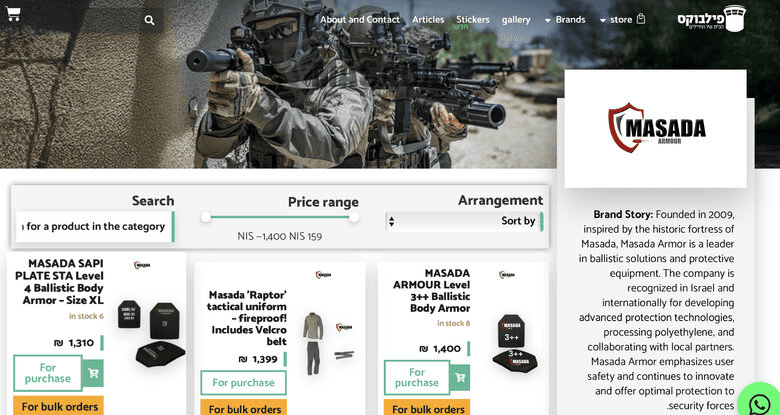
It should be noted that during the bulletproof vest procurements throughout 2024, the State Rear Operator established only two qualification criteria:
- documented experience in executing a similar contract (or contracts) relevant to the subject of the procurement;
- financial capability, confirmed by financial statements.
As a financial guarantee, “Fortress of Defence” submitted the financial documents of “Masada Armour Soy.”
However, according to clause 8 of Appendix No. 1, a procurement participant must submit, as part of their tender proposal, a copy of a license or an order granting a license to manufacture personal protective equipment.
Clearly, “Fortress of Defence” has no production capacity.
Therefore, it cannot be recognized as the winner. Yet there are other companies — key Ukrainian manufacturers, including “TEMP 300,” KHZZIZ, and UKRTAC.
However, instead of moving on to the next candidates after not receiving the required documents from “Fortress of Defence,” the State Rear Operator canceled the tender altogether.
Censor.NET sent an inquiry to the “State Rear Operator” regarding this procurement.
But first, let us recall that the State Enterprise “DOT” conducts procurements for defense needs in accordance with the Law of Ukraine “On Public Procurement” and Cabinet Resolution No. 1275. Part 17 of Article 14 of the Law “On Public Procurement” outlines the grounds on which a contracting authority may cancel a simplified procurement, including:
1. the absence of further need for the procurement of goods, works, or services;
2. the impossibility of correcting violations arising from detected breaches of public procurement legislation;
3. reduction of expenditures for the procurement of goods, works, or services.
None of the listed grounds actually apply as a reason for cancellation.
DOT stated that the reason was that the tender documentation did not specify the requirement to provide a license for the sale of personal protective equipment. Therefore, “considering the impossibility of making changes within the announced procurement,” the tender was canceled.
In response to Censor.NET’s inquiry, DOT stated:
“Since foreign manufacturers participated in the tenders for the first time, the State Rear Operator (DOT) received clarifications from the Ministry of Internal Affairs (MIA), as the licensing authority for personal protective equipment (PPE), regarding the licensing requirements.”
“According to the clarifications, a manufacturer holding a license to produce PPE must also have a license to sell it. At the same time, a distributor selling the products of a non-resident, who holds a production license in their own country, is required to obtain a sales license in Ukraine,” the response stated.
In reality, this only restricted one participant, and DOT could have chosen others. Yet, for some reason, DOT insisted on having this particular supplier.
The same occurred with the December 18 tender, in which “TEMP 3000” and LLC “PAKOPTTORG” participated.
After the January 16 tender, DOT finally contracted 55,000 sets of bulletproof vests from “TEMP” at a price of 22,699 UAH per set. The company is to deliver the vests by October 2025.
But in February, things get interesting again.
In the tender, in addition to “TEMP 3000” and “UKRTAC,” LLC “MILICON UA” also participated. The company was established in August 2022, with an authorized capital of 160,000 UAH. Its main business activity (KVED) is non-specialized wholesale trade, and the secondary activity is weapons manufacturing.
So far, there have been no signs of participation in state tenders, just like “Fortress of Defence.”
However, there is an interesting detail. LLC “MILICON UA” was founded by the same people as “Fortress of Defence.” In fact, 49% of MILICON is owned by “Fortress of Defence,” and the remaining 51% by Dmytro Stetsenko, the owner of the same “Fortress of Defence.”
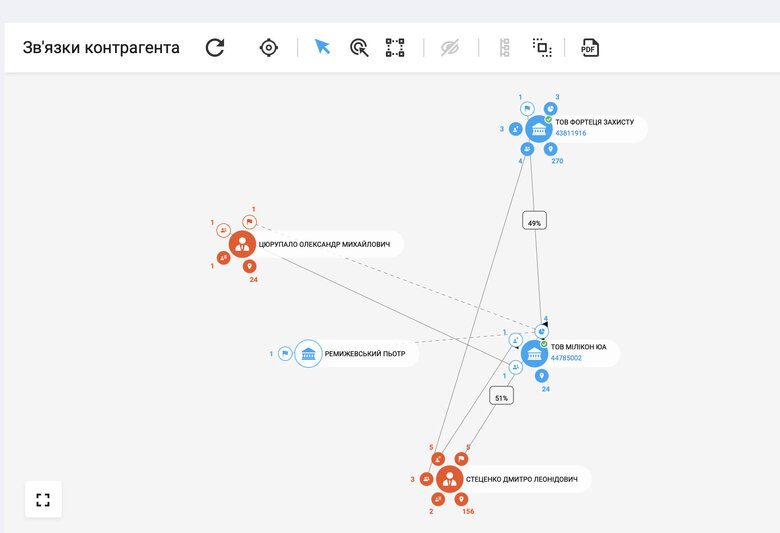
Milicon also acted as a distributor for the Israeli company “Masada Armour Soy.” Notably, if the tenders were announced on February 20, the documents with the Israeli company were signed just three days before the tenders, on February 17.

The qualification criteria were also clearly adjusted specifically for this company.

However, this is not even the most surprising part. No one was particularly trying to hide the connections.
As stated in the complaint from Temp 3000, “the procurement participant LLC Milicon UA did not provide a document issued by the Central Directorate for Material Support Development of the Armed Forces of Ukraine for the item proposed in its own name (LLC Milicon UA), but instead uploaded a document issued to another legal entity — LLC Fortress of Defence. The submitted documents contain no confirmation of a merger, consortium, or any other type of joint activity between LLC Fortress of Defence, which received Letter No. 12-11 on November 12, 2024, approving the sample-standard modular bulletproof vest model ‘Fortress-1’, Type 2, Level P, Kind 5, complete set 1-8, manufactured by MASADA ARMOUR SOY LTD, and LLC Milicon UA.”
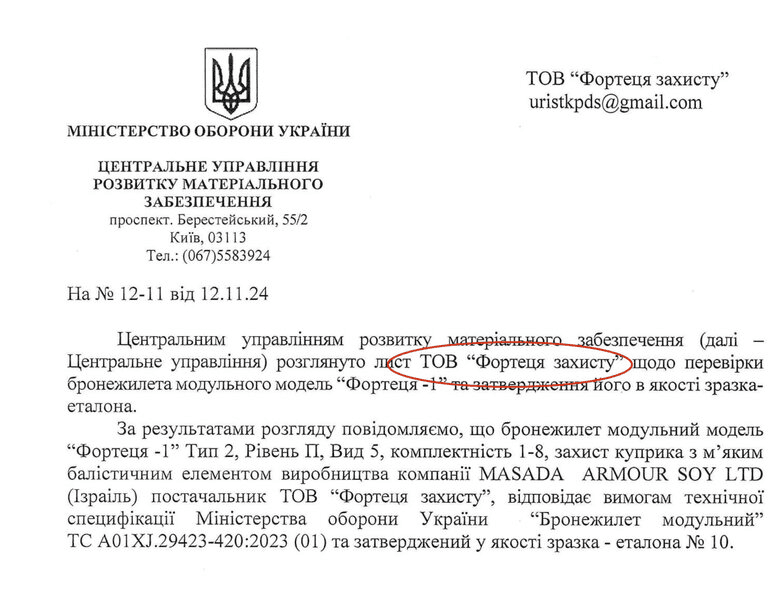
On February 27, DOT signed a contract with an obvious intermediary company. It will supply 10,000 bulletproof vests at a price of 21,752.00 UAH per unit, for a total of 217.5 million UAH.
But here’s what’s strange. Exactly one year ago, “Masada Armour Soy” had already participated in DOT tenders for bulletproof vests and even offered the lowest price. However, at that time, the company did not submit translated documents, and its proposal was rejected. The winner then was Temp.
Let’s take a closer look at the Israeli company itself.
The company “Masada Armour” is an Israeli startup founded in 2009 by Snir Koren, who specialized in military textiles. In 2017, the company underwent significant changes with the arrival of two new partners — Oren Gruber and Yair Rosenberg.
Since then, the company has expanded its production capacity and become a manufacturer of personal protective equipment.
Snir Koren (34) is the company’s CEO. He served as a soldier in the Givati Brigade, and after his service, he earned a degree in industrial engineering and management.
The company’s website displays plates for bulletproof vests, offering protection at Level IV.
So, what do we have in the end?
Over the past year, DOT has still not solved the equation of how to supply the military with bulletproof vests in the required quantities. Currently, the Logistics Command receives about 10,000 sets from DOT each month, although at least 20,000 would be needed.
In Ukraine, there is a significant price gap among manufacturers, largely caused by the fact that one company was a monopoly for a long time. Although other companies have significantly improved their capabilities, they are forced either to operate at a loss or not receive any orders at all.
“Based on the results of the market analysis, as of today, Ukrainian manufacturers do not fully meet the real demand of the Armed Forces of Ukraine for bulletproof vests. The State Enterprise DOT conducts market consultations with international partners/manufacturers to ensure 100% of the bulletproof vest needs for the Armed Forces. It should be noted that DOT carries out procurements according to the lists and volumes provided to DOT by the Ministry of Defense. At the same time, these lists and volumes are determined solely within the available financial resources and do not always reflect the actual need,” reads DOT’s response to Censor.NET’s inquiry.
At the same time, even when there is a need to cover demand through other markets, it is unclear why DOT does not even attempt to do this directly. For example, Ukrzaliznytsia buys gasoline directly from the European manufacturer Orlen. DOT also purchases gasoline from this manufacturer, but through Ukrnafta.
DOT could buy bulletproof vests directly from the Israeli company, but for some reason purchases them through an intermediary, clearly favoring it in the tenders.
In its first year of operation, DOT is very proud of the money it has saved, and this remains the main focus of its work. Price has traditionally been the main marker of corruption in procurements. At the same time, when DOT ignores months-long contract non-performance and does not terminate the agreement, as in the case with “Farminco,” and accidentally makes a mistake that results in only one company, “Resource Oil A,” participating in the tender — effectively controlling the process for the representatives of the Israeli company — it logically raises questions about other corruption risks in DOT’s operations.
Link to the analysis of corruption risks in rear procurements.
There were thoughts that there was no way to prove Umerov’s guilt regarding the bulletproof vest contract with Mindich’s company, since no money had been paid.
Tetiana Nikolaienko strongly disagrees. And since the damn Russians kept her awake, she went through all the violations in these contracts once again.
So, the companies “Fortress of Defence” and “Milicon” could not have participated in the tenders under the criteria that were in effect in 2024. DOT specifically expanded the qualification criteria so that these one-day companies without experience could enter the competition.
DOT recognized Fortress of Defence as the winner, even though it did not have the proper documents (licenses), and later canceled the tender altogether, where it could have recognized the next company as the winner.
When Milicon came to the next tender, DOT accepted the bulletproof vest sample from Fortress of Defence, even though this company was not a supplier.
DOT twice ignored the conclusions of SAS regarding violations in the tenders in favor of these companies, which pointed out that they did not have the proper documents to be recognized as winners. DOT even appealed the SAS conclusion in court — and lost!
DOT has no credit for the fact that these bulletproof vests were not accepted.
The entire scheme took place when the ministry was headed by Rustem Umerov, and began when DOT was still led by Arsen Zhumadilov.
The person responsible for these contracts (Viktoria Vynohradova) was promoted and transferred to the AOZ.
The money was not paid only because the military did not accept these bulletproof vests.
In the published part of the suspicion against Mindich, it is clear that Umerov knew it was his company and that the businessman had invested his own money, and he influenced DOT on this matter.
Therefore, I believe that in this case there is enough evidence for more than one person to be suspected — or at least to lose their position.
Tags: Chinese Armour Scandal Defense Sector Corruption Energy Corruption Network High-Profile Corruption Military Procurement mindich case nabu Ukraine Military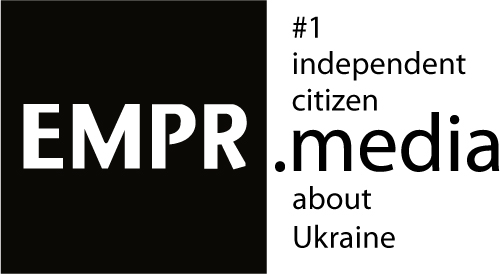
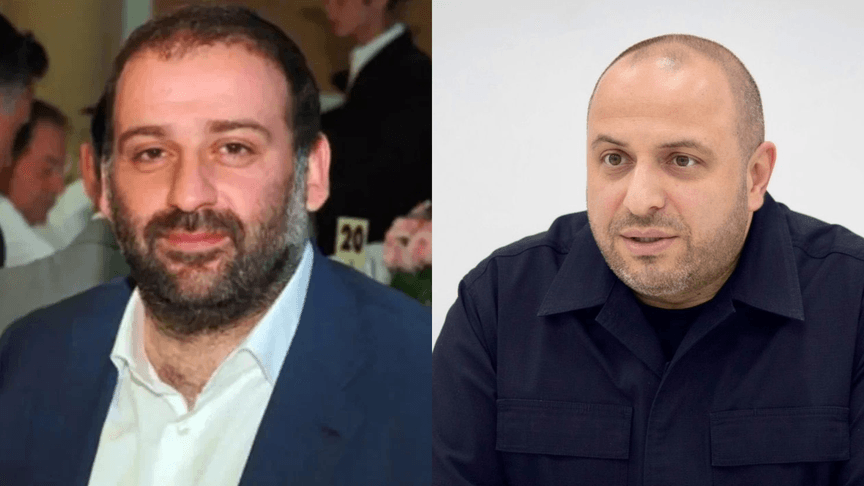

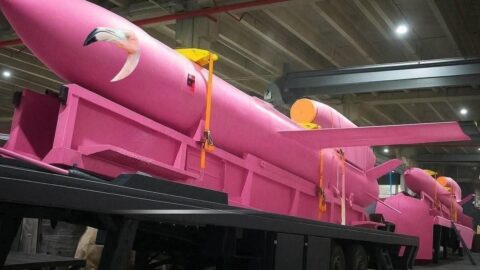

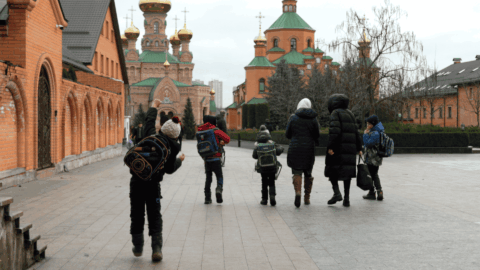
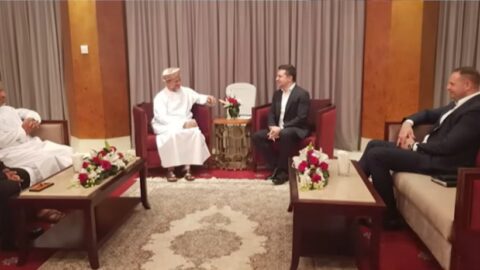
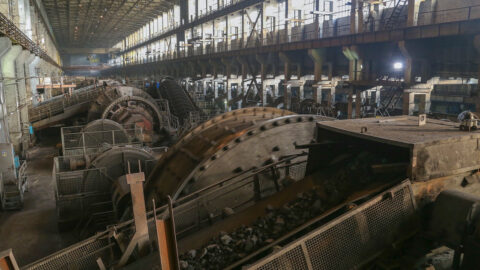
![NATO Secretary General Mark Rutte at the Verkhovna Rada in Kyiv, announcing allied troops, warplanes and naval support will follow a peace agreement with Russia. :contentReference[oaicite:2]{index=2}](https://empr.media/wp-content/uploads/2026/02/marc.png)

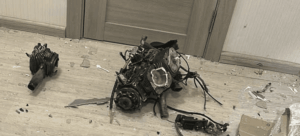
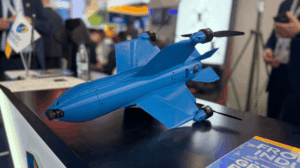

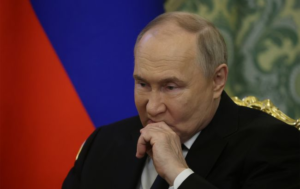
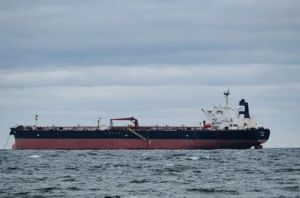

![Outdoor photo exhibition by Ukrainian photographer Oleksandr Hlyadelov on the fence of France’s Ministry for Europe and Foreign Affairs in Paris. :contentReference[oaicite:1]{index=1}](https://empr.media/wp-content/uploads/2026/02/photo-300x168.png)


